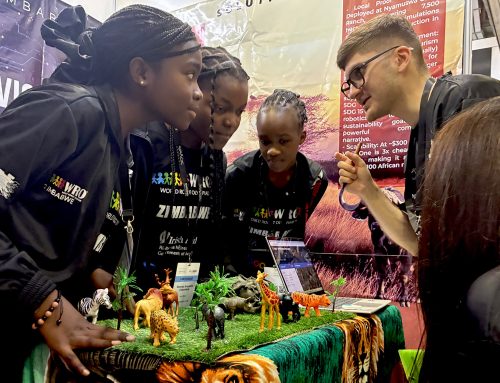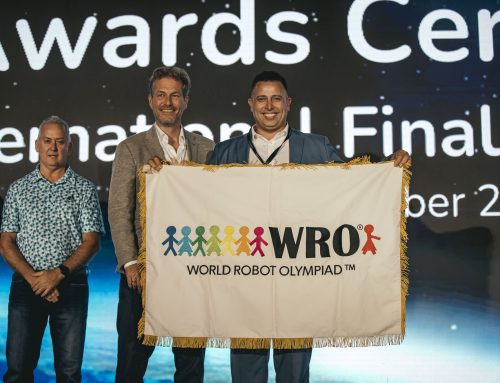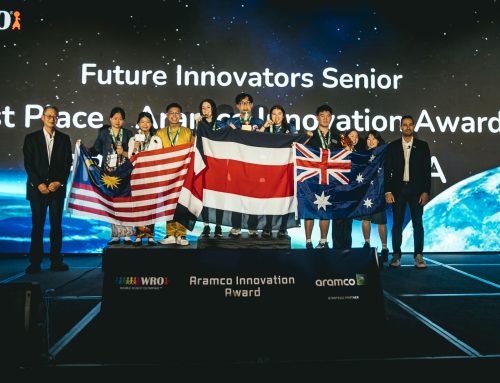We’re sharing stories from our global community. Real accounts of how robotics and WRO® have helped shape the lives of students, coaches, and mentors. This one is about WRO alumnus Pan Yifan from China, who started with a wobbly robot dog for the blind at age ten — and is now researching biomedical robots in Japan.
You can rarely tell in the moment that something will have a profound impact on your life. Especially at age ten. That was how old Pan Yifan was when he first took part in a WRO national final. He was competing in the RoboMission Category, a competition where you build, and program an autonomous robot to solve tasks on a field. During a break, he wandered over to the Open Category. What was there blew his mind: robots designed not just to move, but to matter.
“I saw these large and complex projects and thought: ‘Cool robots!’” he smiles at the memory. “It changed how I viewed robotics.”
The following year, he switched to Open Category, now Future Innovators – a competition where students create robotic solutions to real-world problems.
“WRO respected my ideas and helped me turn them into projects. I was a researcher, no matter how young I was.”
His project, a robot dog for the blind, wasn’t perfect. But the idea that robotics could transform lives stuck with him.
Growing like a tree
Yifan entered other STEM contests, but WRO kept pulling him back for seven seasons. At first it was the thrill of robots and teamwork. Later, it was the philosophy of collaboration.
“Future Innovators is at its core a team competition where each member plays a role, leaning into strengths while learning from others. Year after year I grew like a tree, branching into new areas.”
Not every year was smooth. New teammates and coaches meant new dynamics. Sometimes collaboration flowed, sometimes he had to carry more of the load. He now sees that as training for life:
“Encouraging students to take on big projects together is one of WRO’s strengths. You face collaboration problems everywhere in society, so learning how to work with different kinds of people is a big advantage.”
From poor grades to an engineering degree
Spending so much time on robotics came at a cost: slipping grades and worries about university. But a WRO scholarship took him to the Milwaukee School of Engineering (MSOE) in the US.
He spent four formative years there. When fellow students took one exam, he would take three. His old insecurities from high school fell away as he discovered he could match, and sometimes surpass, peers from top universities.
Giving back, looking forward
With a bachelor’s in engineering, Yifan returned to WRO China in 2022 as a volunteer and judge.
His teaching style is asking questions, nudging students forward, and celebrating their breakthroughs.
“I am gradually understanding what my coach felt,” he says. “When I see young students go from knowing nothing to professional understanding, it makes me happy.”
Teaching is just one of Yifan’s dreams. He remains deeply driven by the idea of robotics transforming lives. At Waseda University in Japan, Yifan explores how 3D printing and smart materials can be used to create biomedical robots — from artificial bones that replace damaged tissue to nano-stents that open blocked arteries. His next goal: sensors that help implants detect disease before symptoms appear.
“This will be the future of human society,” he says. “I hope my research can help cure more human illness.”
Pan Yifan profile:
Age: 25
Role in WRO: alumni, judge at WRO events, volunteer, mentor
Current studies: Master’s student in Biomedical Engineering with a focus on micro-nano fabrication, Waseda University, Umeshin Lab, Waseda University, Japan
Fun Fact: Years of Future Innovators presentations has made Pan Yifan skilled at graphic design. Today, professors and lab groups hire him to create visuals for their reports.







